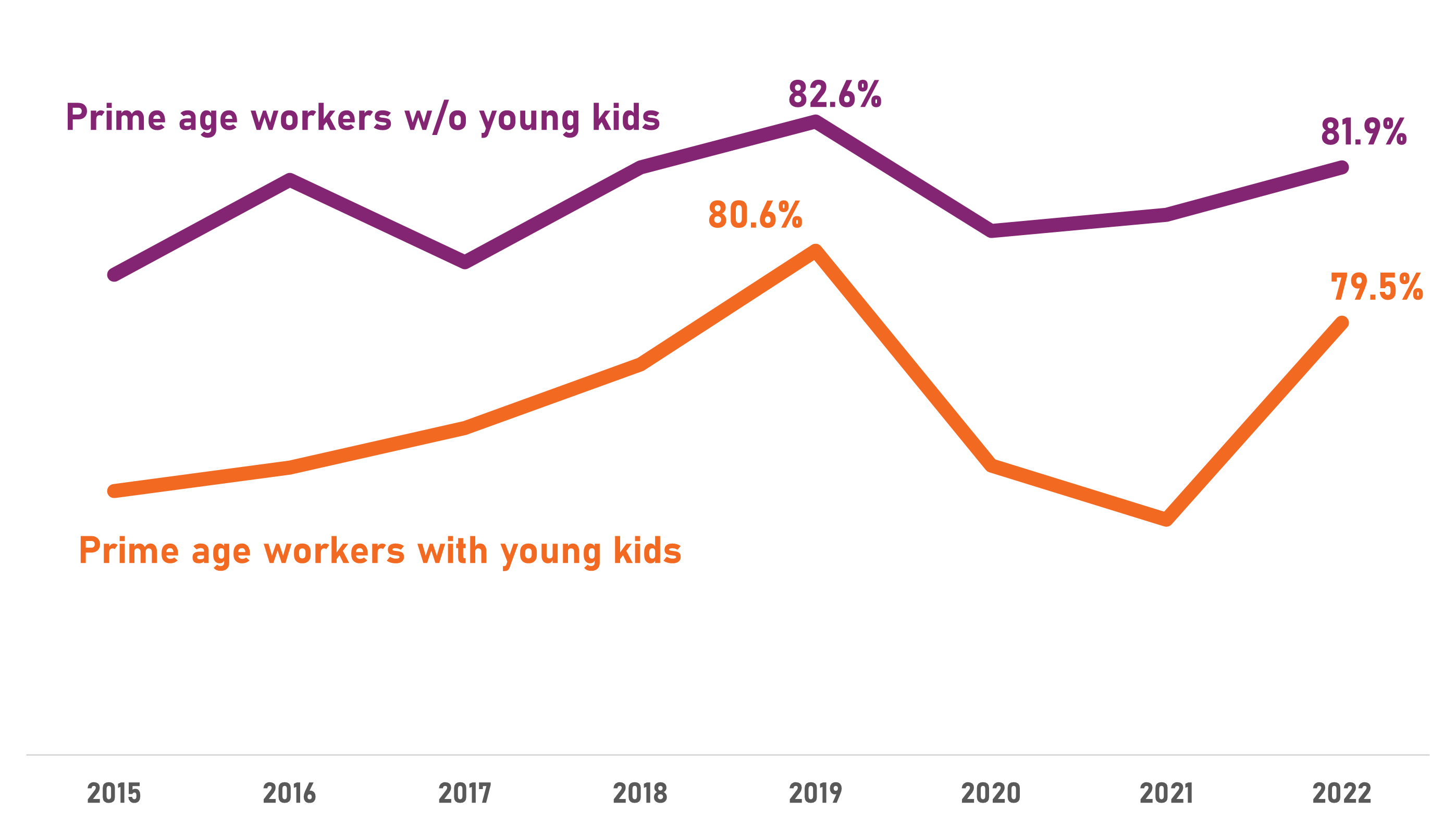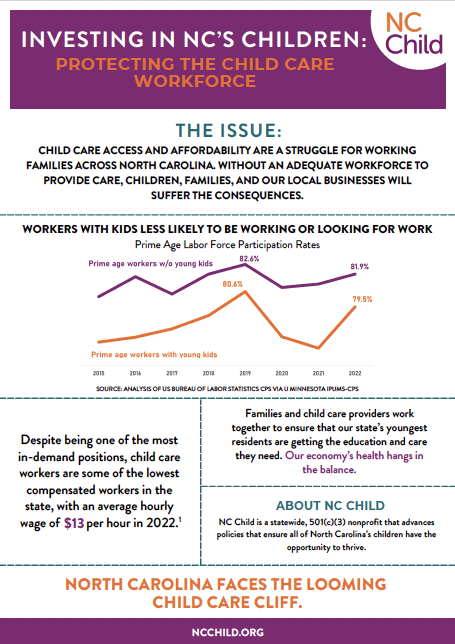INVESTING IN NC’S CHILDREN: PROTECTING THE CHILD CARE WORKFORCE
The Issue: Child care access and affordability are a struggle for working families across North Carolina. Without an adequate workforce to provide care, children, families, and our local businesses will suffer the consequences.
Workers with kids less likely to be working or looking for work.

Despite being one of the most in-demand positions, child care workers are some of the lowest compensated workers in the state, with an average hourly wage of $13 per hour in 2022. (1)
Families and child care providers work together to ensure that our state’s youngest residents are getting the education and care they need. Our economy’s health hangs in the balance.
North Carolina faces the looming child care cliff.
Recommendation: Protect the Child Care Workforce
Cost to the state:
- $150 million/year to extend compensation component of Child Care Stabilization Grants
How much does inaction cost?
-
Without taking actions to invest in the child care workforce, we could see child care workers leave the industry en masse in search of higher-paid positions that will help their families better make ends meet. Fewer child care workers will limit parents’ ability to work and make it more difficult for businesses to find workers.
What’s been done so far?
In 2023, Kentucky made child care free for all child care workers, regardless of income.
- One year later, the number of children receiving state subsidies jumped to 40,000 – and 3,600 of those children are the kids of child care employees. (2)
- More than 30 states are now assessing the feasibility of Kentucky’s model.
Increase compensation rates and provide free child care to ECE workers.
Early educators experience severe wage disparities for working with younger children across the US, with poverty rates an average of 7.7 times higher than teachers in the K-8 system. (3)
To protect our kids, we need to properly cover the needs of our educators.
Contact:
Cassandra Rycek, Policy Analyst, cassandra@ncchild.org
Tiffany Gladney, Sr. Director of Policy and Government Relations, tiffany@ncchild.org
References:
1. Center for the Study of Child Care Employment. (2020). Early Educator Pay & Economic Insecurity Across the States. The Early Childhood Educator Workforce.
2. Gaines, C. (2023, October 12). Free daycare for teachers’ kids could help fix the crisis for all parents. Business Insider.
3. US Bureau of Labor Statistics, Occupational Employment and Wages (OEWS) via LEAD, NC Department of Commerce
Download
